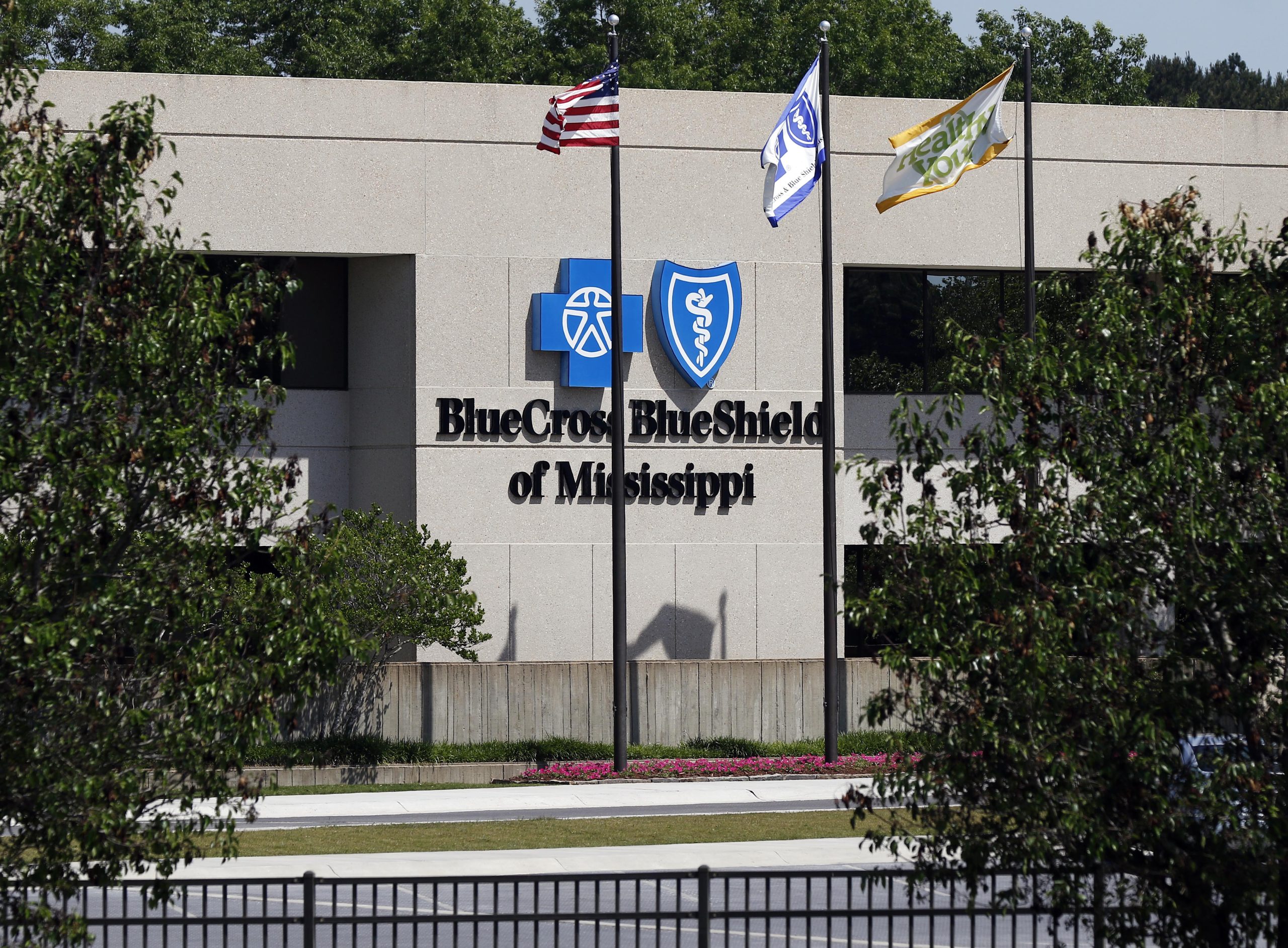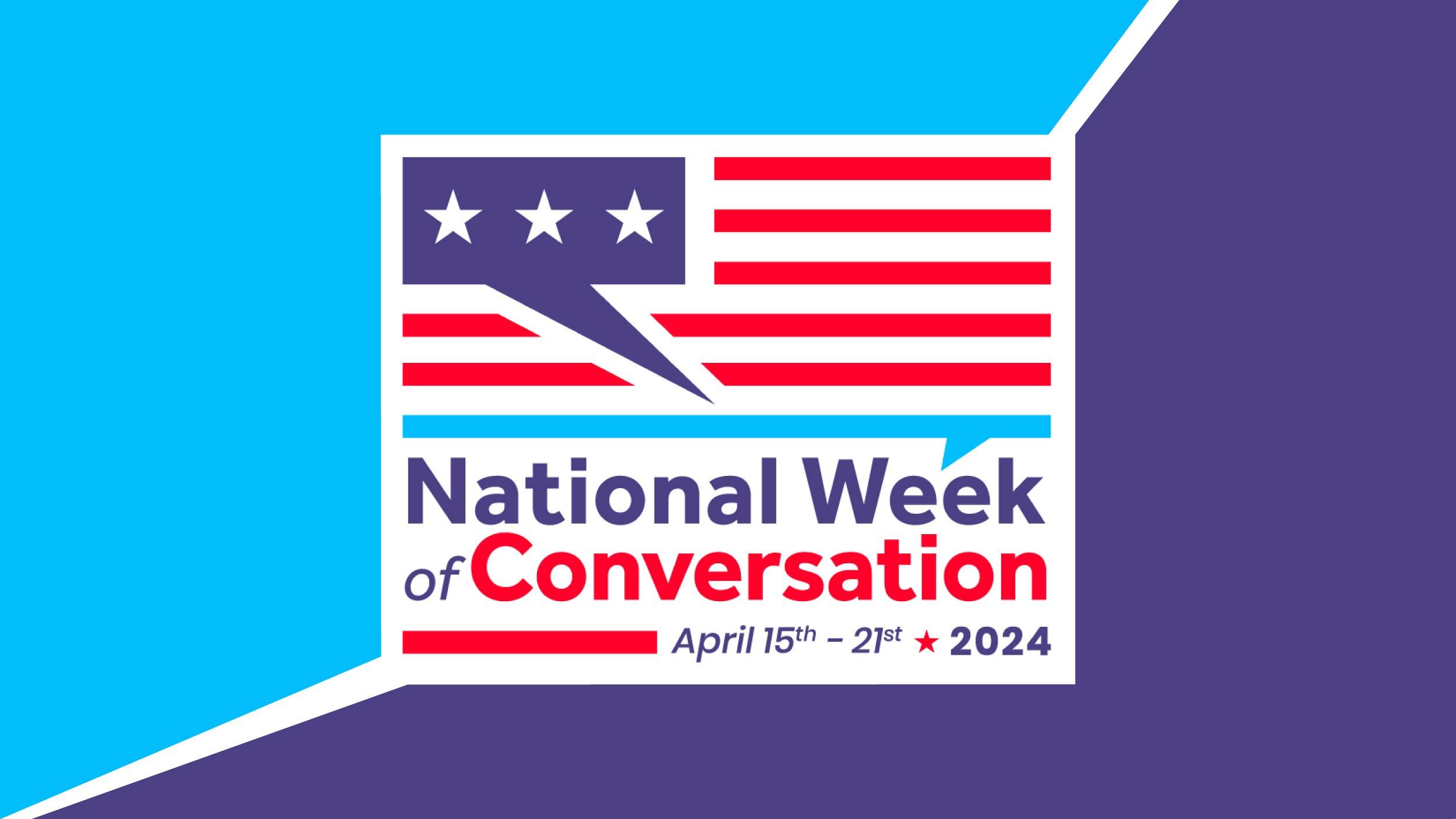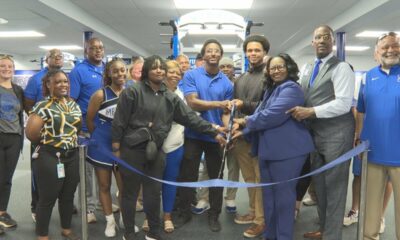Mississippi Today
BCBS drops defamation lawsuit against UMMC

BCBS drops defamation lawsuit against UMMC
Blue Cross and Blue Shield of Mississippi dropped its defamation lawsuit against the University of Mississippi Medical Center, one day after the two parties signed a contract agreement to bring the hospital back in network with the state's largest insurer.
James McCullough II, an attorney representing the insurance company, dismissed the lawsuit Friday with prejudice — meaning these complaints cannot be refiled again in court — and asked that no answer or motion for summary judgment be filed in court.
In the July lawsuit filed in Rankin County Circuit Court, Blue Cross alleged that UMMC's public relations campaign was “designed to disseminate false and defamatory statements about Blue Cross to the public.”
The company took issue with the campaign's advertisements and public statements made by UMMC employees that allege Blue Cross ended its contract with the hospital and the insurer “excluded” UMMC from the network of providers as a result. The insurer claimed the campaign was defamatory and harmed its reputation and business.
In response to the July filing, Blue Cross filed for a subpoena of UMMC's communications with news outlets Mississippi Today and SuperTalk Radio, which both closelycovered the contract dispute between the private insurer and the state's largest hospital.
The subpoena also specifically asked for communications between UMMC officials and Kate Royals, Mississippi Today's community health editor who worked as a writer/editor at UMMC between stints at the news organization.
Mississippi Today nor any of its employees have been subpoenaed or been named as a party in any lawsuit related to the contract dispute.
UMMC had received deadline extensions for their response to the lawsuit, according to courtdocuments.
The lawsuit was against UMMC employees Vice Chancellor for Health Affairs and Dean of the School of Medicine Dr. LouAnn Woodward, Associate Vice Chancellor for Clinical Affairs Dr. Alan Jones, Executive Director of Communications and Marketing Marc Rolph, and other unnamed UMMC employees.
UMMC itself was not named as a defendant in the lawsuit because state law grants UMMC immunity for defamation committed by its employees.
Editor's note: Editor's note: UMMC, through an ad agency, has placed paid advertisements about the BCBS dispute on Mississippi Today's website. Advertisers have no input in the editorial process. Kate Royals, Mississippi Today's community health editor since January 2022, worked as a writer/editor for UMMC's Office of Communications from November 2018 through August 2020.
This article first appeared on Mississippi Today and is republished here under a Creative Commons license.
Did you miss our previous article…
https://www.biloxinewsevents.com/?p=201425
Mississippi Today
Meet the six people negotiating a final Medicaid expansion bill at the Capitol
The House and Senate can now begin negotiating ways to enact a law to expand Medicaid coverage to poor Mississippians after legislative leaders named the six people to hammer out a final plan.
House Speaker Jason White, R-West, recently appointed Republican Reps. Missy McGee of Hattiesburg, Sam Creekmore IV of New Albany and Joey Hood of Ackerman to be the House negotiators.
Republican Lt. Gov. Delbert Hosemann last week named Republican Sens. Kevin Blackwell of Southaven, Nicole Boyd of Oxford and Brice Wiggins of Pascagoula to represent the Senate in the deliberations.
The six conferees are all white Republicans, despite Senate Minority Leader Derrick Simmons, a Democrat from Greenville, recently calling on Hosemann to appoint a Democrat as a conferee. Two of the six conferees are women, but no Black lawmaker will have a seat at the negotiating table.
The six members, called conferees, will attempt to forge an agreement over the different versions of the expansion plan that have passed the House and Senate.
The House's expansion plan aims to expand health care coverage to upwards of 200,000 Mississippians, and accept $1 billion a year in federal money to cover it, as most other states have done.
The Senate, on the other hand, wants a more restrictive program, to expand Medicaid to cover around 40,000 people, turn down the federal money, and require proof that recipients are working at least 30 hours a week.
White previously told Mississippi Today in an interview that he is willing to compromise on a plan that fully covers people up to 138% of the federal poverty level, but he does not intend to agree to a plan that forgoes the full 90% matching rate from the federal government.
“Look, at this point, if it makes sense, and when I say conservative, I mean from a dollars and cents standpoint,” White said of expansion. “I'm convinced, and health care professionals have convinced me, that this population, this is the way to cover these individuals.”
If the House and Senate conferees agree on a compromise, the final bill will go back before the two chambers for consideration. If lawmakers sign off on the plan, it will then go to Republican Gov. Tate Reeves who has privately threatened to veto any type of expansion bill.
Here are the three House negotiators and three Senate negotiations who will soon begin meeting on a final Medicaid expansion bill.
House conferees:
Rep. Missy McGee, R-Hattiesburg:
McGee is the chairwoman of the House Medicaid Committee and has been a champion of reforming the state's Medicaid laws to provide more services to current Medicaid recipients and expanding coverage to more people.
Earlier this year, she spearheaded legislation to allow pregnant women whose net family income is 194% or less of the federal poverty level to be presumed eligible for Medicaid and receive care before their Medicaid application is officially approved by the Mississippi Division of Medicaid.
Even before White appointed her to lead the Medicaid committee, she successfully shepherded legislation through the Capitol that extended benefits for pregnant people on Medicaid that increased their timeline for receiving benefits from 60 days for a full year.
Rep. Sam Creekmore IV, R-New Albany:
Creekmore is the chairman of the influential House Public Health Committee. While Creekmore's committee does not necessarily have jurisdiction over Medicaid policy, his stance on the issue holds enormous sway over House colleagues and the state's medical community.
The son of a physician in rural northeast Mississippi, Creekmore has also been an early voice calling for lawmakers to expand Medicaid under the Affordable Care Act. He's also advanced legislation to provide more mental health services to Mississippians.
Rep. Joey Hood, R- Ackerman:
Hood may be a somewhat unusual conferee because he is currently the chairman of the House Judiciary A Committee, a committee with jurisdiction over the state's civil code.
Hood, however, is a close ally of Speaker White's and previously led the House Medicaid Committee during the last four-year term. Hood somewhat became the face of Medicaid policy stagnation during the last term because he called relatively few committee meetings and let numerous expansion bills die at his hands.
Hood last year, though, did allow McGee's postpartum Medicaid bill to come up for a full vote on the House floor. Ironically, Hood will now have a hand in shaping the finalized Medicaid expansion bill that his House colleagues consider passing into law.
Senate Conferees:
Sen. Kevin Blackwell, R-Southaven:
Blackwell is the chairman of the Senate Medicaid Committee, who has advocated for a more strict Medicaid expansion plan. He has previously been opposed to Medicaid expansion, but has come around to adopting a hybrid model, similar to Arkansas' expansion plan.
Blackwell has advocated for strict work requirements for Medicaid expansion recipients and advocated for a plan that only extends Medicaid coverage for 99% of the federal poverty level.
The DeSoto County legislator has indicated the Senate may be unwilling to deviate from many of its hardline positions on expansion, so his voice during the conference process will be critical.
Sen. Nicole Boyd, R-Oxford:
Boyd is the vice chairman of the Senate Medicaid Committee. Though she's only in her second term as a lawmaker, she has quickly cemented herself as a legislator who can usher substantive policies through the Capitol and broker deals with the House.
She has previously led the debate on Medicaid reform bills in the Senate and could be crucial in navigating a potential impasse with House leadership over the ongoing Medicaid expansion legislation.
Sen. Brice Wiggins, R-Pascagoula:
Wiggins is the chairman of the Senate Judiciary A Committee, the committee that deals with the state's civil statutes. A member of the Public Health Committee, the Jackson County lawmaker has been supportive of postpartum Medicaid extension and presumptive eligibility.
During the debate over its expansion plan, Wiggins spoke out in favor of passing the Senate's expansion plan and has pushed back on Republican Gov. Tate Reeves' opposition to the legislation.
This article first appeared on Mississippi Today and is republished here under a Creative Commons license.
Mississippi Today
Constructive dialogue can be the bridge to understanding and empathy

“We need to talk.”
When uttered, these four words have the power to instill fear in the hearts of spouses, children, and employees alike. They aptly describe the situation we face as a nation today.
The problem? Toxic polarization – the way we demonize each other across differences. Most of us have few or no friends who have different political preferences. We think “other people in America” pose the biggest threat to our way of life. We are finding it more and more difficult to say what we believe without the conversation devolving into utter chaos. Unsurprisingly, we shut down. We don't talk. It's a problem we can all hear, loud and clear.
The good news is that most of us want to talk. Most of us believe it is crucial for everyday Americans to be involved in finding solutions to the problems facing their communities. In a time marked by deep-seated divisions along ideological, political, and social lines, the need for constructive dialogue has never been more pressing.
Since last August, 19 graduate students seeking a degree in Integrated Marketing Communications at the University of Mississippi have been planning and preparing for the seventh annual National Week of Conversation (NWoC). They are helping provide real opportunities for people across the country to build bridges of understanding and empathy. Each of them committed to the course because they understand that beneath our differences lie shared humanity and common aspirations. They've been learning and applying concepts from Collective Impact and Reflective Structured Dialogue and are both inspiring and encouraging to work with.
At its core, NWoC embodies the principles of empathy, respect, and openness – values that are essential for a thriving democracy. When people take the time to really listen to others, they learn. They learn that we really aren't that different, that we share many of the same values and aspirations, something reinforced by findings of several studies. They learn that others, like them, desire to make positive change in our communities. They learn, as Brene Brown has written, that “people are hard to hate close up.”
These students are being courageous enough to put aside their own agendas and listen to the experiences of others. They are finding that this desire to listen across our differences is shared by the majority of their peers. And they are standing up opportunities to work together despite forces working to tear us apart.
But don't take their word for it. Experience it yourself. Find an event to attend, here, and be with the nearly 80% of Americans who believe in creating more opportunities for people to talk across their differences. And who knows, maybe you'll learn its not as scary as it sounds after all.
Graham Bodie is Professor and Interim Chair of the Department of Media and Communication in the School of Journalism and New Media at the University of Mississippi. When asked what he does for a living he responds, “I teach people to listen.” More importantly, he has been able to work with a group of dedicated students for several years to plan and execute the National Week of Conversation, a yearly campaign launched by Listen First Project in 2018 that seeks to provide opportunities for people to #ListenFirst across their differences. This year, those students have put together an amazing set of promotional toolkits and events for the Better Together Film Festival that features film screenings across the country including Tupelo and Oxford. Several of them contributed to the writing of this piece.
Join the conversation.
Join us at Noon on Friday, April 18 for a lunch and learn session exploring tools to make us better listeners, and in turn, better equipped to engage in meaningful conversations across differences.
The session will be led by Dr. Graham Bodie, professor and Interim Chair of the Department of Media and Communication in the School of Journalism and New Media at the University of Mississippi.
This event is free and open to the public. Register to receive more information.
This article first appeared on Mississippi Today and is republished here under a Creative Commons license.
Did you miss our previous article…
https://www.biloxinewsevents.com/?p=349578
Mississippi Today
Constructive dialogue can be the bridge to understanding and empathy
“We need to talk.”
When uttered, these four words have the power to instill fear in the hearts of spouses, children, and employees alike. They aptly describe the situation we face as a nation today.
The problem? Toxic polarization – the way we demonize each other across differences. Most of us have few or no friends who have different political preferences. We think “other people in America” pose the biggest threat to our way of life. We are finding it more and more difficult to say what we believe without the conversation devolving into utter chaos. Unsurprisingly, we shut down. We don't talk. It's a problem we can all hear, loud and clear.
The good news is that most of us want to talk. Most of us believe it is crucial for everyday Americans to be involved in finding solutions to the problems facing their communities. In a time marked by deep-seated divisions along ideological, political, and social lines, the need for constructive dialogue has never been more pressing.
Since last August, 19 graduate students seeking a degree in Integrated Marketing Communications at the University of Mississippi have been planning and preparing for the seventh annual National Week of Conversation (NWoC). They are helping provide real opportunities for people across the country to build bridges of understanding and empathy. Each of them committed to the course because they understand that beneath our differences lie shared humanity and common aspirations. They've been learning and applying concepts from Collective Impact and Reflective Structured Dialogue and are both inspiring and encouraging to work with.
At its core, NWoC embodies the principles of empathy, respect, and openness – values that are essential for a thriving democracy. When people take the time to really listen to others, they learn. They learn that we really aren't that different, that we share many of the same values and aspirations, something reinforced by findings of several studies. They learn that others, like them, desire to make positive change in our communities. They learn, as Brene Brown has written, that “people are hard to hate close up.”
These students are being courageous enough to put aside their own agendas and listen to the experiences of others. They are finding that this desire to listen across our differences is shared by the majority of their peers. And they are standing up opportunities to work together despite forces working to tear us apart.
But don't take their word for it. Experience it yourself. Find an event to attend, here, and be with the nearly 80% of Americans who believe in creating more opportunities for people to talk across their differences. And who knows, maybe you'll learn its not as scary as it sounds after all.
Graham Bodie is Professor and Interim Chair of the Department of Media and Communication in the School of Journalism and New Media at the University of Mississippi. When asked what he does for a living he responds, “I teach people to listen.” More importantly, he has been able to work with a group of dedicated students for several years to plan and execute the National Week of Conversation, a yearly campaign launched by Listen First Project in 2018 that seeks to provide opportunities for people to #ListenFirst across their differences. This year, those students have put together an amazing set of promotional toolkits and events for the Better Together Film Festival that features film screenings across the country including Tupelo and Oxford. Several of them contributed to the writing of this piece.
Join the conversation.
Join us at Noon on Friday, April 18 for a lunch and learn session exploring tools to make us better listeners, and in turn, better equipped to engage in meaningful conversations across differences.
The session will be led by Dr. Graham Bodie, professor and Interim Chair of the Department of Media and Communication in the School of Journalism and New Media at the University of Mississippi.
This event is free and open to the public. Register to receive more information.
This article first appeared on Mississippi Today and is republished here under a Creative Commons license.
-
Mississippi News2 days ago
Mississippi will soon be bombarded with cicadas
-
Mississippi News6 days ago
Community rallies behind Starkville High basketball coach
-
SuperTalk FM7 days ago
Manhunt underway for ex-cop accused of killing nurse at Jackson apartments
-
Local News7 days ago
Mississippi Power ready to respond ahead of spring severe weather on Wednesday
-
SuperTalk FM6 days ago
Ex-cop arrested in connection to killing at Jackson apartment complex
-
SuperTalk FM2 days ago
2 Jones County correctional officers arrested in smuggling bust
-
SuperTalk FM22 hours ago
4 tornadoes touched down in Mississippi during latest round of severe storms
-
Mississippi News6 days ago
One dead, one injured after severe storms hit Mississippi









































